-
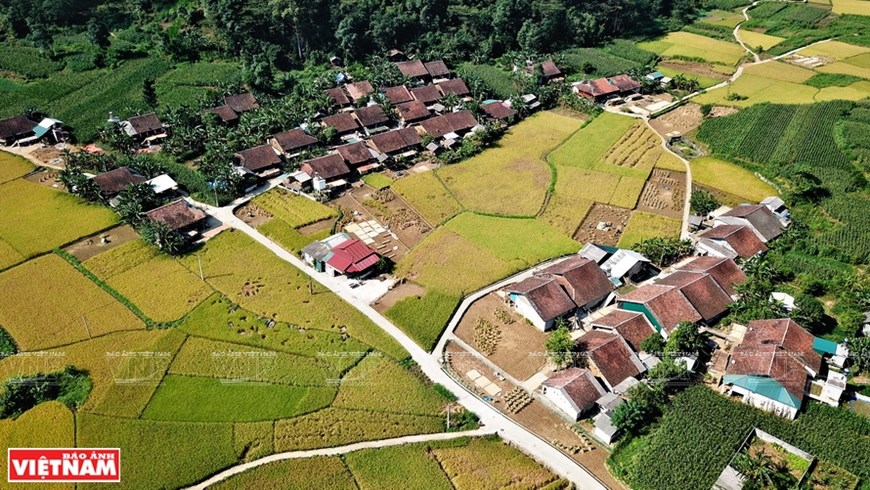
Stilt houses in peaceful Phia Thap village (Photo: VNP)
-
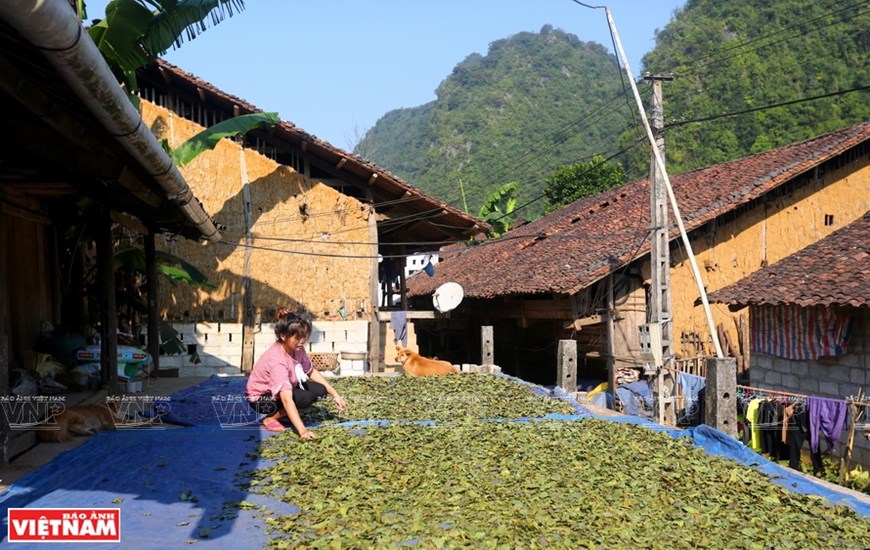
Villagers dry the gourd leaves in the sun (Photo: VNP)
-
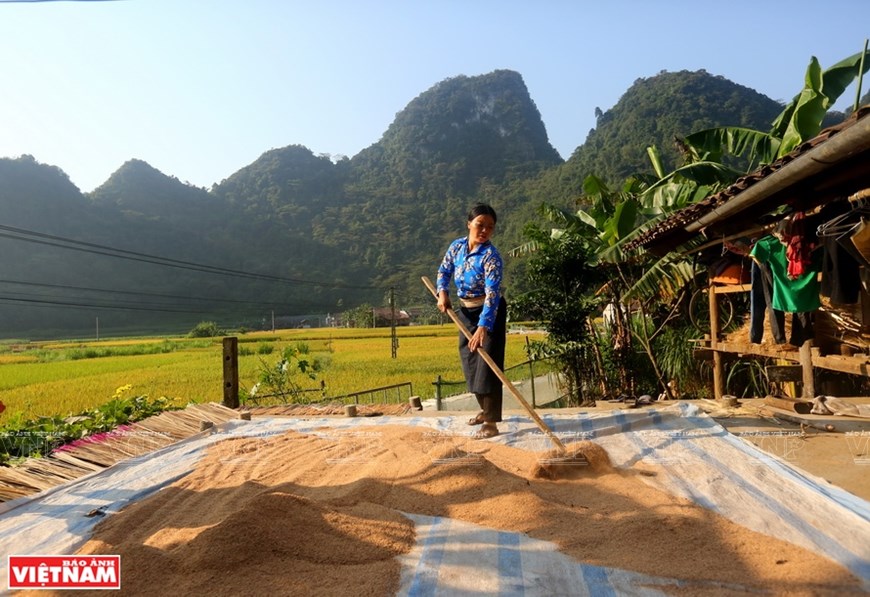
Dry the glue which is made from the gourd leaves (Photo: VNP)
-
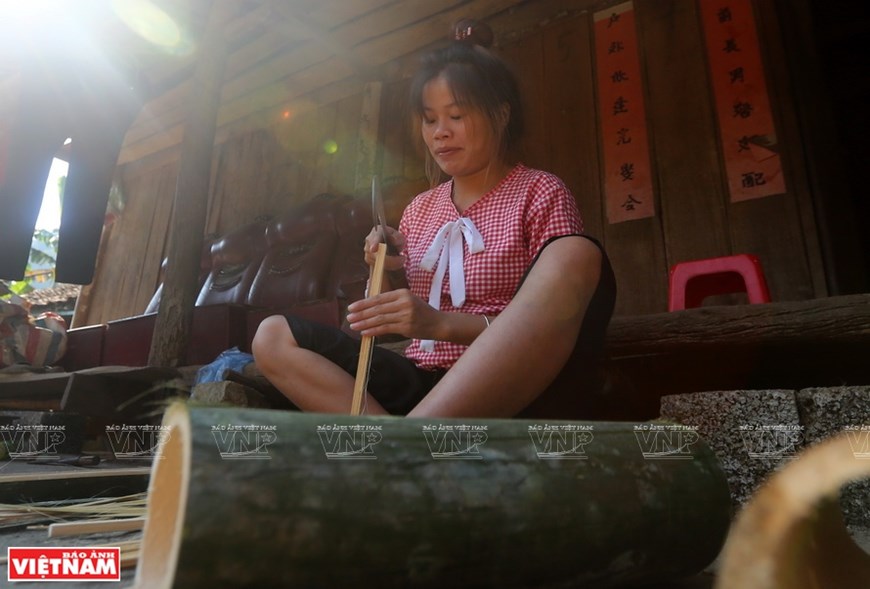
One of the main materials for making incense is a yellow apricot tree (Photo: VNP)
-
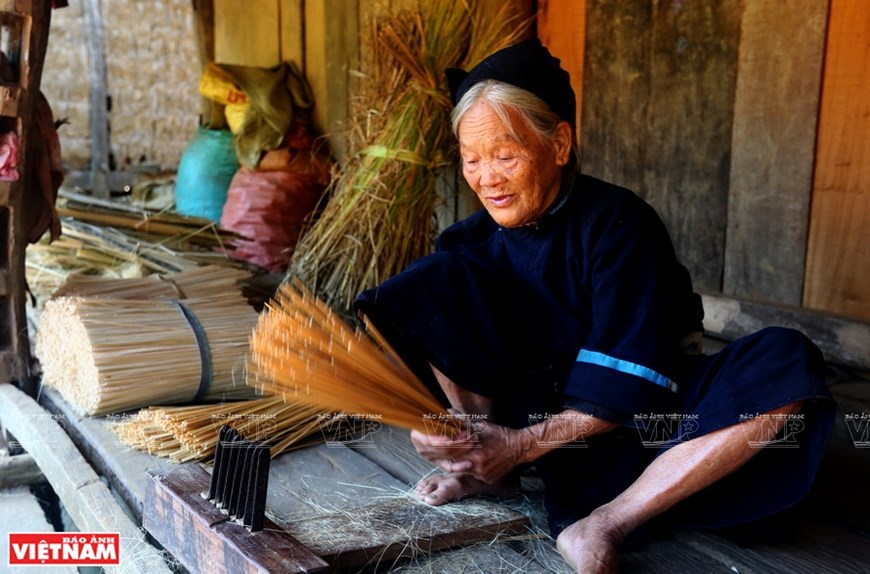
Incense is considered the connection between real life and the spiritual world in Vietnamese culture. Making incense has become an indispensable cultural specificity.
In the photo: One of the main materials for making incense is a yellow apricot tree (Photo: VNP) -
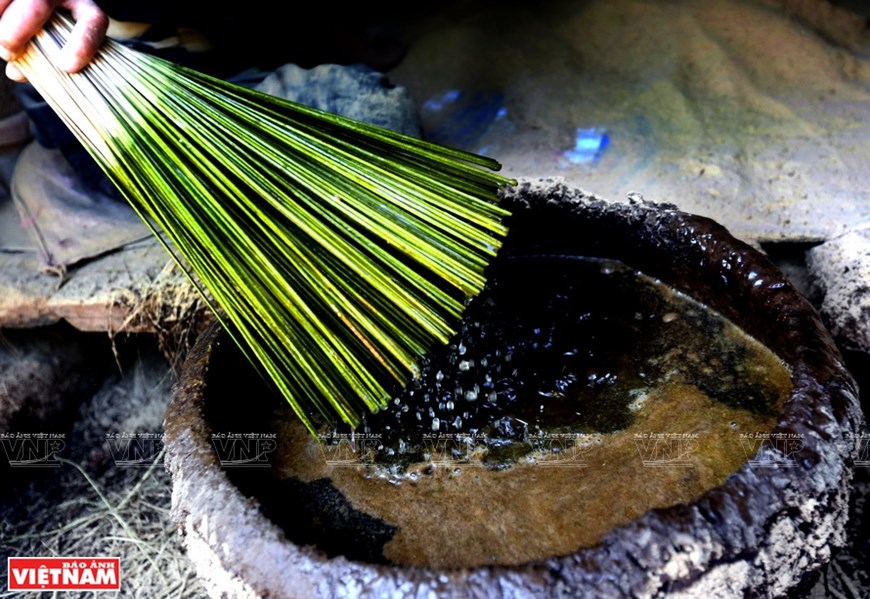
The sticks are soaked four times in a flour mixture of sawdust and agarwood powder to create beautiful incense sticks (Photo: VNP)
-
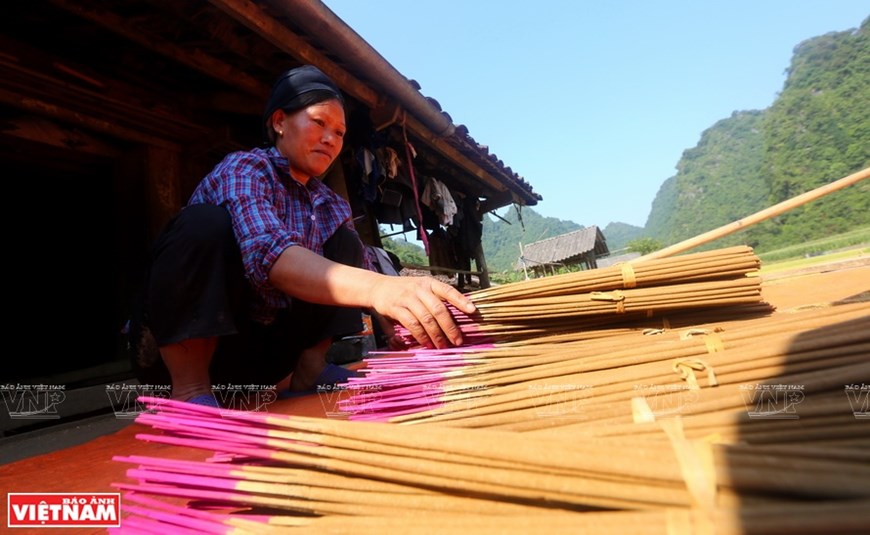
The incense making craft of the Nung people has a long history. For Phia Thap villagers, making incense is not only portraying their national identity but is also associated with the custom of burning incense in Vietnam. In the photo: Drying the incense in the sun (Photo: VNP)
-
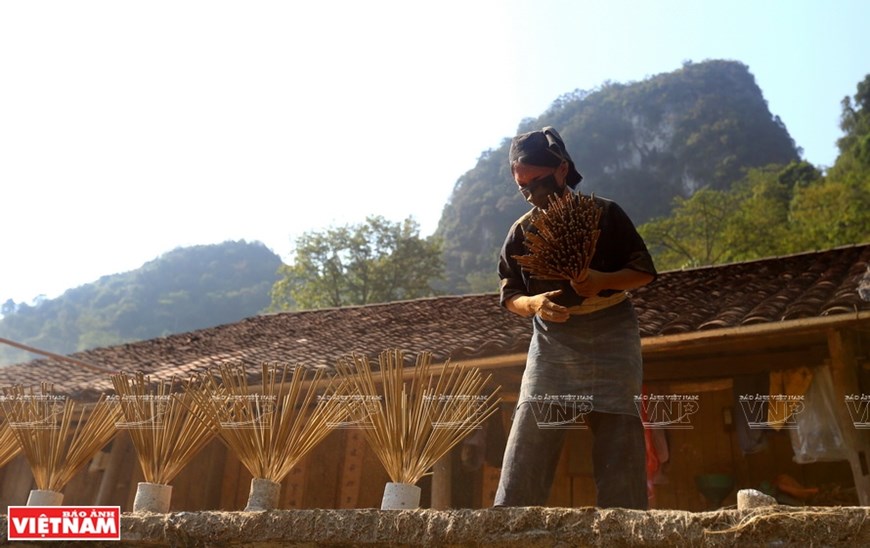
Although no one knows when the incense making craft began, this tradition has been handed down from generation to generation in the Nung community.(Photo: VNP)
-
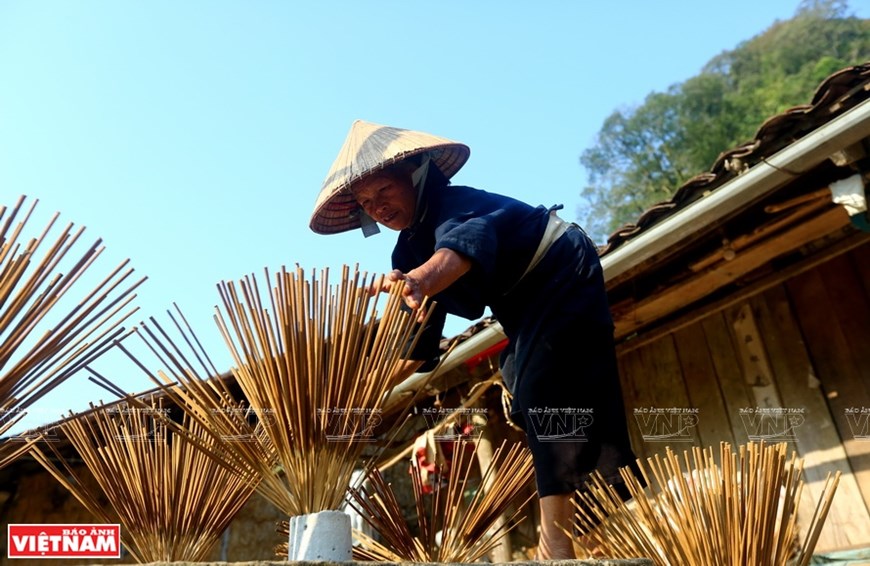
More than 50 families in Phia Thap village are involved in this traditional craft (Photo: VNP)
-
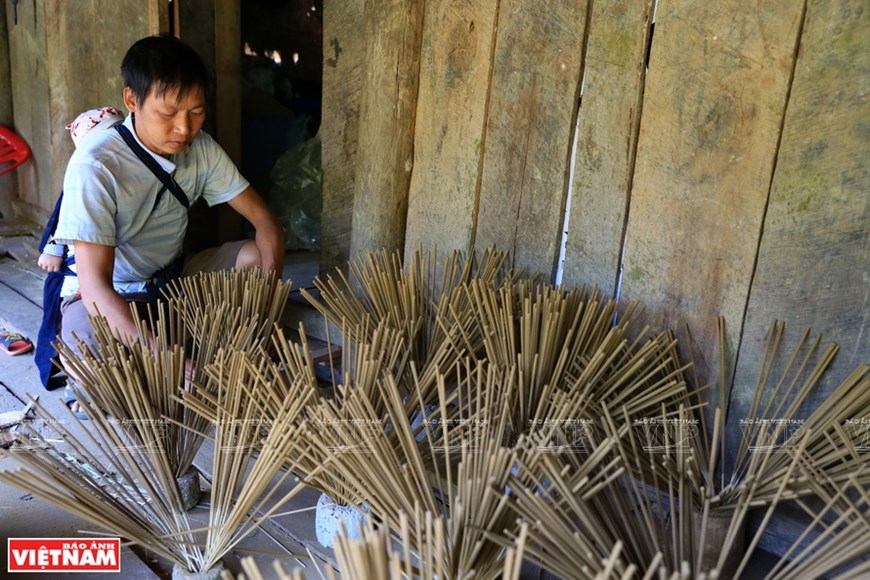
Drying the incense in the sun (Photo: VNP)
-
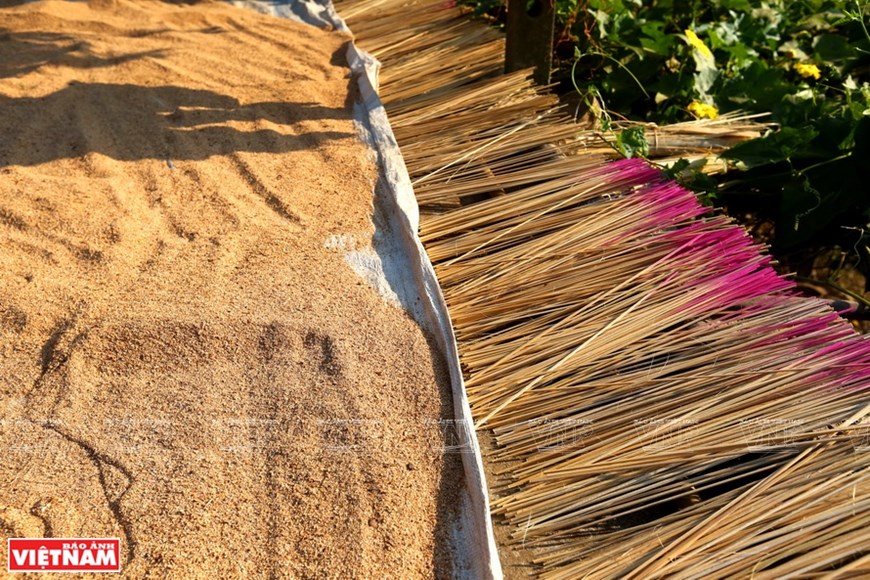
If the weather is cloudy, it takes three days for the incense to dry (Photo: VNP)
-
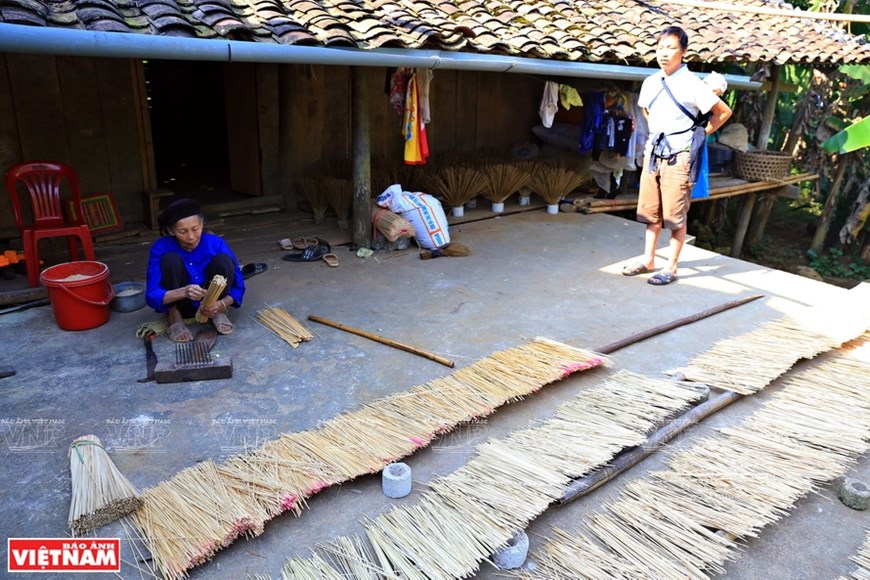
The sticks are dyed red on the bottom half and dried again, before being tied into bundles (Photo: VNP)
-
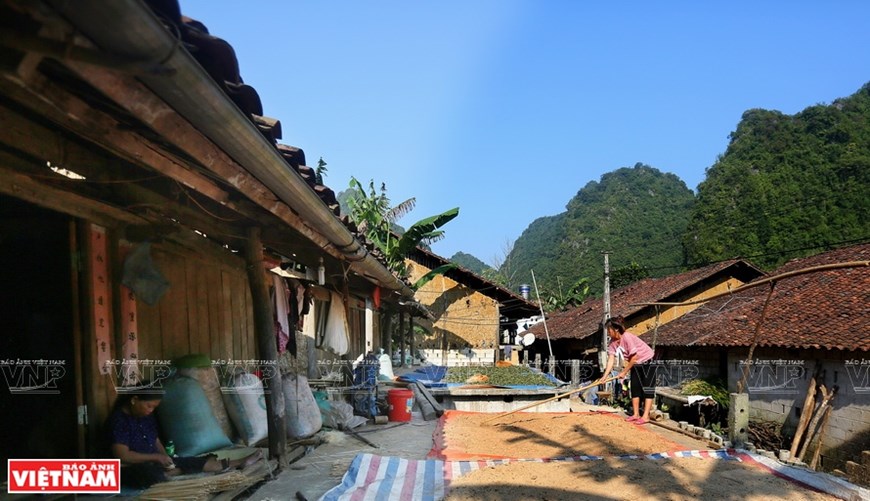
The most time-consuming stage is drying the incense in the sun (Photo: VNP)
Phia Thap incense village in Cao Bang province
The incense craft of the Nung ethnic minority people in Phia Thap village, Quoc Dan commune, Quang Uyen district, Cao Bang province is contributing to the preservation of a traditional spiritual culture.



